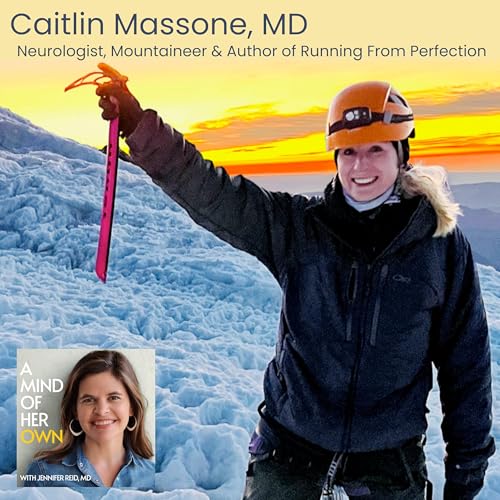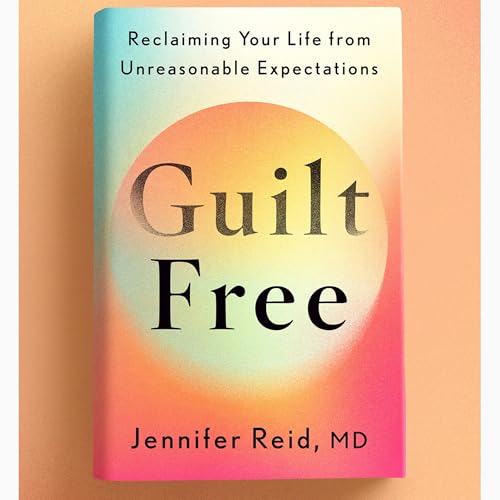Join Dr. Reid, psychiatrist, creator and host of “A Mind of Her Own,” and author of Guilt Free, for this conversation with Nancy Reddy, author of The Good Mother Myth and creator of Be Less Careful and Mara Gordon, family doctor and creator of the Your Doctor Friend by Mara Gordon newsletter. We discuss: * External validation (fellowships, book deals) helps but isn’t the whole story—self-actualization with age matters moreOn Midlife Transformation* The conversation centered on women making big changes in midlife when life seems “set”* Mara just turned 40 and sees a shift toward self-actualization that comes with age* There’s power in coming to realize what doesn’t work for you (as Jennifer noted from Parker Palmer) as much as what doesOn Healthcare and Creativity* Both physicians emphasized the need for creative outlets alongside science—whether theater, writing, or podcasting* The medical system rewards quantitative efficiency over storytelling, yet healthcare contains rich narratives that deserve to be told* Writing in healthcare comes with unique fears: professionalism concerns, employer reactions, HIPAA violations, plus universal impostor syndromeAdvice for Healthcare Writers* Write beyond fear: Identify specific sources of fear (HIPAA, professional image, employer concerns) and name them* Find your values: What matters to you? Build work that lets you grow and shine in alignment with those values* Build community: Connect with other writers, mentors, and trusted friends who can help you navigate fears* Try different formats: Podcasts, newsletters, books—find what feels authentic to your communication styleNotable Quote: “I think anyone in healthcare has really the potential to create some beautiful work. There’s so many stories there that really deserve to be told.”The Takeaway: Writing is an act of courage, especially in fields like medicine where vulnerability feels risky. But midlife offers a gift—enough experience to know what matters, enough confidence to claim your voice, and enough wisdom to write beyond fear.Find Dr. Reid on Instagram: @jenreidmd, LinkedIn, and YouTubeYou can also preorder Dr. Reid’s book, Guilt Free! (If you are in the UK, you can order here and here.)Also check out Dr. Reid’s regular contributions to Psychology Today: Think Like a ShrinkThanks for reading A Mind of Her Own! Subscribe for free to receive new posts and support my work.Seeking a mental health provider? Try Psychology TodayNational Suicide Prevention Lifeline: 1-800-273-8255Dial 988 for mental health crisis supportSAMHSA’s National Helpline - 1-800-662-HELP (4357)-a free, confidential, 24/7, 365-day-a-year treatment referral and information service (in English and Spanish) for individuals and families facing mental and/or substance use disorders.Disclaimer:The views expressed on this podcast reflect those of the host and guests, and are not associated with any organization or academic site. Also, AI may have been used to create the transcript and notes, based only on the specific discussion of the host and guest and reviewed for accuracy.The information and other content provided on this podcast or in any linked materials, are not intended and should not be construed as medical advice, nor is the information a substitute for professional medical expertise or treatment. All content, including text, graphics, images and information, contained on or available through this website is for general information purposes only.If you or any other person has a medical concern, you should consult with your health care provider or seek other professional medical treatment. Never disregard professional medical advice or delay in seeking it because of something that have read on this website, blog or in any linked materials. If you think you may have a medical emergency, call your doctor or emergency services (911) immediately. You can also access the National Suicide Help Line at 1-800-273-8255 or call 988 for mental health emergencies. This is a public episode. If you would like to discuss this with other subscribers or get access to bonus episodes, visit amindofherown.substack.com
Voir plus
Voir moins
 39 min
39 min 31 min
31 min Jan 13 202646 min
Jan 13 202646 min 44 min
44 min 33 min
33 min 32 min
32 min 36 min
36 min 54 min
54 min
